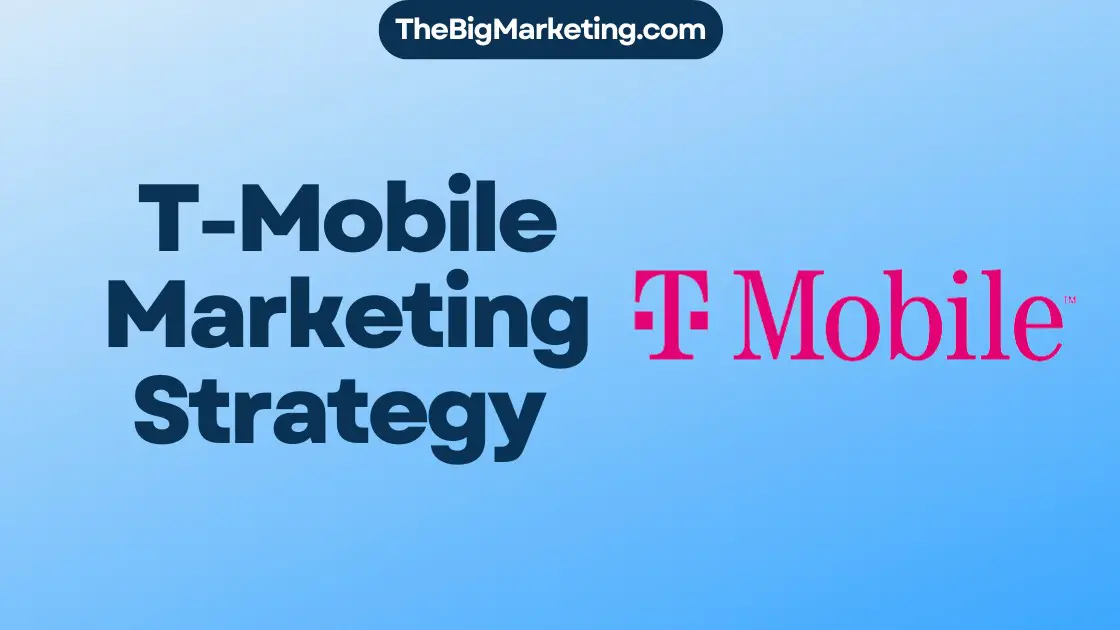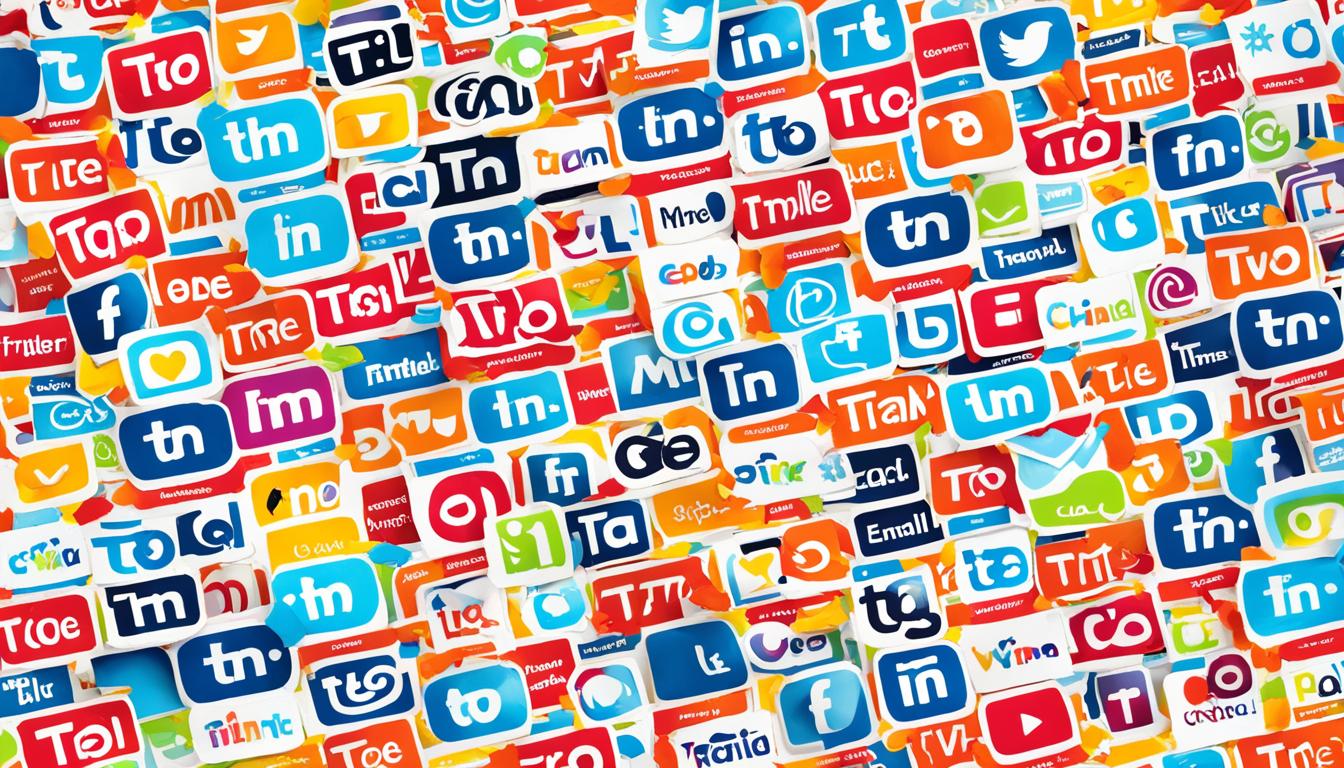Sports marketing is a smart way to share sports events, activities, and products. It uses many methods like ads, sponsorships, and partnerships. Marketing teams work hard to make engaging campaigns. These aim to grab attention, build loyalty, and increase sales.
Key Takeaways:
- Sports marketing involves promoting sporting events, activities, and products through various marketing techniques.
- It includes sports advertising, sponsorships, endorsements, and partnerships.
- Sports marketing agencies play a crucial role in creating successful campaigns that connect brands with fans and athletes.
- The goal is to capture attention, generate brand loyalty, and drive revenue for the organization.
- Successful sports marketing campaigns include Nike’s “Just Do It” and P&G’s “Thank You, Mom.
The Power of Sports Marketing
Sports marketing is a strong way for brands to connect with fans. Companies use sports sponsorship to link with popular athletes or teams. This helps improve their brand image and reach more people.
By getting involved in sports, brands can tap into the emotions of fans. This creates a positive link between fans and the brand’s products or services.
Athlete branding has become a key part of sports marketing. Athletes have strong personal brands that fans love. When brands partner with these athletes, they can share in their authenticity.
This helps promote products in a way that feels real and credible to fans.
Sports media marketing is crucial too. It uses different media platforms to connect with fans. Today, digital media lets brands and sports organizations share great content and talk directly with fans. This improves the fan experience a lot.
Benefits of Sports Sponsorship
Sports sponsorship lets brands meaningfully connect with people. By teaming up with teams or athletes, brands get more visible and credible. Fans’ emotional attachments to their favorites can boost brand recognition.
This can lead to greater loyalty and stronger sales.
Besides more visibility, sponsoring sports shows what a brand stands for. Brands supporting charitable sports events can look better in the eyes of consumers who care about society.
Athlete Branding and its Impact
Athletes can change how people see products. Their success, personality, and fan connections make them great for promoting brands. When athletes show off products, it can really affect what consumers think and buy.
Athlete branding is a partnership that helps both sides. Athletes use their fame to advertise products. Brands get access to the athlete’s fans. This can increase brand exposure and sales.
Sports Media Marketing and Fan Engagement
Sports media marketing uses media to interact with fans. It includes using TV, radio, and social media to share content. Brands can share interviews, behind-the-scenes videos, and talk directly with fans. This makes being a fan more exciting.
Social media has changed sports marketing. Fans feel closer to their favorite teams and athletes. This sense of community strengthens the bond between fans and sports entities. Using social media in sports marketing creates interactive experiences that increase loyalty.
In summary, sports marketing connects brands with fans deeply. It uses sports sponsorship, athlete branding, and media marketing. This lets companies join in the passion fans have for sports. Ultimately, it leads to lasting loyalty and business growth.
Successful Sports Marketing Campaigns
Many sports marketing campaigns have made a lasting mark on us. They use different promotional tactics to engage fans and build a strong brand. These campaigns also make use of digital sports marketing, especially social media, to reach more people.
Nike’s “Just Do It” Campaign
Nike’s “Just Do It” campaign, started in 1988, is very iconic. It’s become a part of the brand and sports culture. It inspires people to keep trying and follow their dreams. The slogan “Just Do It” encourages athletes around the world.
P&G’s “Thank You, Mom” Campaign
P&G’s “Thank You, Mom” campaign was launched during the 2012 Olympics. It celebrates moms’ support and sacrifices for athletes. The ads were emotional, touching viewers’ hearts. This made P&G known for valuing family and perseverance.
The examples above show how sports marketing strategies are effective. Emotional connections and digital marketing help these campaigns succeed. They make consumers feel connected and recognized by brands.
The image highlights the power of sports marketing. It shows how fans’ attention can be captured and memorable experiences created. With careful planning, brands can use sports promotional strategies and digital marketing to deeply engage with their audience.
Inspiring Sports Marketing Examples
Sports partnerships mix brands, teams, and athletes to launch powerful campaigns. They connect deeply with fans. Two examples show how these collaborations can be super successful.
Seattle Seahawks and Starbucks Collaboration
The Seattle Seahawks teamed up with Starbucks to create a special line of merchandise. It combined football excitement with coffee love. This partnership reached Seahawks fans and coffee lovers alike.
By focusing on football and coffee, they attracted more people. This move increased loyalty and boosted sales for both the Seahawks and Starbucks.
Chicago Blackhawks’ “What’s Your Goal” Campaign
The Chicago Blackhawks started the “What’s Your Goal” campaign. It invited fans to share their personal ambitions. This created a strong community feel among fans and players.
This effort increased the team’s connection with its fans. It also made fans more loyal to the brand. It showed that sports teams could build meaningful relationships with supporters.
These stories highlight the power of sports partnerships in marketing. They show how emotional ties and fan engagement can help a brand. Teaming up with the right partners and creating appealing campaigns can lead to big wins for businesses.
Impactful Sports Marketing Campaigns
Sports marketing has two main kinds: marketing of sport and marketing through sport.
Marketing of sport promotes sports events, teams, and products directly to people. This aims to create awareness and interest in sports and related products. These strategies include ads, endorsements, and sponsorships.
Marketing through sport uses sports to promote brands and products. It connects with passionate fans to boost brand visibility and engage consumers. This often involves partnerships with athletes or sports events.
Both types have led to impactful campaigns in the industry.
Example 1: Puma’s Viral Marketing Campaign
Puma launched a viral campaign during the FIFA World Cup. It showed legendary footballer Pelé adjusting his shoelaces. The video went viral on social media, showcasing Puma in a memorable way.
Example 2: Sport England’s “This Girl Can” Campaign
Sport England started the “This Girl Can” campaign. It aims to encourage women to take part in sports. Through inspiring videos, it celebrates women of all shapes, sizes, and abilities. This campaign inspired many women to join sports.
| Campaign | Type of Sports Marketing |
|---|---|
| Puma’s Viral Marketing Campaign | Marketing through sport |
| Sport England’s “This Girl Can” Campaign | Marketing through sport |
The Influence of Athletes in Sports Marketing
Athletes are key in sports marketing, helping brands reach out to fans. They team up with brands to boost product awareness. Their fame helps brands connect better with people. Brands get more visibility and trust through athletes. Aside from ads, athletes also interact with fans online. They share content to build strong relationships.
Athlete endorsements do more than just advertise. They bridge a special trust with fans, showcasing products in a relatable way. Whether it’s sneakers or sports drinks, stars can link a brand to their own image. This creates strong brand and athlete associations.
Athletes share their world on social media, offering fans a peek behind the curtains. This gives brands a chance to make genuine, relatable content. By using athletes’ social platforms, brands can reach more people and form personal connections.
Engagement and Authenticity
Sports marketing today is all about real connections and engagement. Athletes share their life, training, and stories online. This makes them seem more human and relatable to fans. Brands can use this authenticity. It helps them join the athlete’s journey, winning fans’ loyalty and trust.
Social media is a key tool for athletes to connect with fans. They answer comments, host Q&A sessions, and share special content. This builds a sense of community, deepening ties between athletes, fans, and brands.
The Power of Influence
Endorsements from athletes really work, says a Forbes study. Fans look up to their sports heroes, making endorsements more effective. Athletes can sway people’s choices and encourage them to buy.
By backing a brand, athletes share their own trust and reputation. This makes the brand more credible and sets it apart from rivals. Using the emotional bond fans have with athletes boosts brand perception and sales.
The Bottom Line
Never overlook athletes’ power in sports marketing. They’re crucial for brands wanting to engage fans and increase visibility. By collaborating with athletes, brands craft effective campaigns. These strategies resonate with people and lead to success.
The Role of Social Media in Sports Marketing
Social media has changed the game in sports marketing. Brands can now talk directly to fans and create fun experiences. This has opened new paths for marketing in sports, allowing closer connections with fans.
Building Fan Engagement
Platforms like Facebook, Twitter, and Instagram are crucial for teams and athletes. They help build personal brands and grow their fan base. By sharing behind-the-scenes content and live updates, they connect better with fans. This stronger bond increases brand loyalty and opens doors for sponsorships.
Promoting Events and Engaging Fans
Social media is an affordable, effective way to hype up sports events and engage fans. Using hashtags and viral challenges grabs attention. Plus, fans can chat with athletes and teams, creating a strong community feel.
Real-Time Updates and Breaking News
Fans want updates and news now, and social media delivers. Platforms like Twitter give instant game scores and player news. This keeps fans in the loop and brands seen as trusted info sources.
Creating Brand Advocates
When fans connect with teams or athletes on social media, they become brand champions. They share content, spreading the word naturally. This boosts the reach of marketing campaigns and raises brand awareness.
Social media is key in sports marketing for direct communication with fans. It has reshaped how organizations connect, share, and promote. With digital marketing’s evolution in sports, social media will stay essential for engaging fans and building loyalty.
The Impact of Major Sporting Events
Big sports events like the FIFA World Cup and the Super Bowl are golden opportunities for marketing. These events draw millions of viewers worldwide. This makes them perfect for brands to get noticed and promoted.
During these times, companies pour a lot of effort and money into sports ads. They aim to grab the huge audience’s attention. This way, their brand stands out and stays in the minds of millions. Brands can reach sports fans deeply and build strong bonds by using these events wisely.
Creating memorable campaigns is key for effective sports marketing. These campaigns must connect with fans and make a strong impact. Brands should tell stories that capture the event’s thrill and excitement. This helps them connect deeply with their audience.
For instance, in the FIFA World Cup, companies get creative with their ads. They highlight the sport’s passion and unity. Their campaigns often include star athletes and powerful messages. This captures the essence of the event.
But the influence of major sporting events isn’t just about short-term visibility. When brands link themselves to big events, they boost their image. They become more credible and win customer loyalty. Fans start to see these brands in a positive light, often leading to repeated business.
These events also open doors for partnerships within the sports world. Brands can team up with sports organizations, teams, and athletes. These collaborations bring mutual benefits. They allow brands to connect with dedicated fans, increasing engagement during and after the event.
To sum it up, big sports events play a huge role in marketing within the sports industry. They offer brands a chance to engage with a large and passionate audience. Brands can create lasting impacts, boost their image, and form strong connections with fans. By seizing these opportunities, brands can take their marketing to the next level and find great success in the sports world.
The Evolution of Sports Marketing
Sports marketing has changed a lot because of new consumer tastes and technology. Brands have adopted new trends to engage fans. This keeps them relevant in the fast-paced sports world. Let’s look at the main changes in sports marketing.
Personalized Experiences
Now, sports marketing focuses on personalized experiences. Brands use consumer data to give tailored content and immersive fan experiences. They make promotions, access, and recommendations more personal. This improves the fan experience.
Immersive Technologies
Virtual reality (VR) and augmented reality (AR) are big in sports marketing. They let fans interact with sports in new ways. Fans can feel like an athlete or enjoy a game-day vibe at home. VR and AR make fan experiences memorable and unique.
Data-Driven Strategies
Data analytics is key in sports marketing now. It helps brands understand what fans like and want. This means marketing can be more targeted and effective. Using data, brands can make better decisions, improve marketing, and get more from their investment.
Sports Marketing in the Future
The future of sports marketing looks very bright. Thanks to tech advancements and social media’s rise, brands will discover new ways to connect with fans. They will create campaigns that truly make an impact.
Success in sports marketing will hinge on personalization. Brands must tailor their messages and experiences for their audience. By knowing their fans better and providing personalized content, brands will forge stronger connections and boost engagement.
Engaging customers is also critical for the future of sports marketing. Brands should focus on offering interactive and immersive experiences. This includes augmented reality experiences and gamification at events and online.
The merge of sports and technology is vital too. Devices like smartwatches give brands insights into fan behaviors. Streaming and online platforms are growing, giving brands more chances to reach their audience through live streams and exclusive content.
In summary, the keys to future sports marketing are personalization, engaging customers, and merging sports with technology. Brands that adapt to these trends will lead the way. By connecting deeply with fans and offering unique experiences, brands will achieve success in the changing sports marketing world.
Conclusion
Sports marketing is always changing and is key in promoting events and connecting with fans. It helps in building a strong brand loyalty. With sports becoming more popular and new tech emerging, the outlook is very bright.
Companies that use new strategies and work with famous athletes will stand out. They need to focus on digital ways to reach fans. Being creative and understanding what fans like will help make memorable campaigns.
The future holds many chances for marketers to engage fans even more. They can do this by offering unique experiences and using new tech. With the right tools and knowledge, brands can thrive in the sports marketing world.







